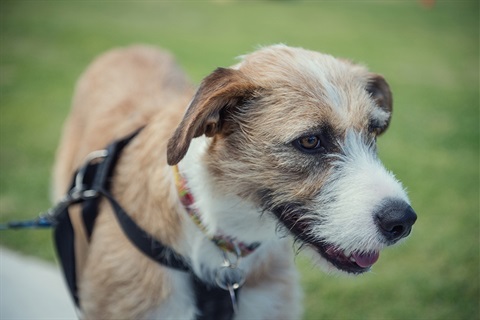Barking dogs

Barking dogs are one of the most common complaints made to Council.
It is also one of the more difficult and time consuming issues our Rangers deal with because:
- there are different ideas on what constitutes excessive barking
- gathering evidence can be time consuming and difficult
- our Rangers often need to consult with neighbours to figure out whether the barking is indeed causing a nuisance
- owners often are not aware that their dog is barking excessively.
Why do dogs bark?
Taking care of a dog's basic needs is the simplest way to prevent it from barking.
Dogs sometimes bark because they are:
- not getting enough exercise
- neglected or lacking attention
- lonely or bored
- sick or in need of veterinary attention
- chained to a fixed point or don't have enough room to move around
- being provoked deliberately or unintentionally by people or other roaming animals
- hungry or generally neglected
- lacking shelter or water
- suffering from separation anxiety.
What can I do about my dog?
If you are worried your dog is barking too much:
- make sure your dog has plenty of food, water and shelter from rain and sun.
- give your dog plenty of attention when you are home.
- exercise your dog and help it to work off its excess energy. Exercise is also a good way to socialise your pet and reduce the possibility of aggression against other people.
- leave toys out for your dog to play with when you're not there.
- regularly worm your dog and seek veterinary advice when needed.
- discipline your pet by being kind but firm. Take it to obedience or puppy school, or get advice from your vet.
- never leave your dog on a chain for long periods as this can cause a number of behavioural problems. If you must chain your dog, do it on a running wire to allow some free movement and ensure it gets plenty of exercise when you are at home.
If your dog continues to bark excessively despite these tip, you can try:
- confining your dog to the backyard, away from interference or provocation by passing people or other animals.
- restricting your dog's vision through the fence or gate.
- consider training; talk to a specialist, reputable trainer, or your local dog training club.
- keep your dog inside or confined to the garage or a garden shed at night.
- try a citronella collar. These are available from leading pet shops and send a spray of citronella (which dogs don't like) each time your dog barks. They quickly learn to associate the unpleasant effect with their barking. Citronella collars may not work in all situations.
What can I do about someone else's dog?
- Contact the dog's owner first. They may not be aware their dog is barking, particularly if it only does it when they are away.
- Be courteous. Your neighbours may not know how to go about fixing the problem, so you might be able to help with information or suggestions.
- Be specific. Let your neighbour know if the dog is barking at certain times and give them an opportunity to correct the problem.
- Contact Council on (02) 4232 0444 if you can't resolve the situation.
We encourage neighbours to try to resolve the problem by negotiating.
Negotiation can be conducted between each party, or with the assistance of an independent mediator such as a Community Justice Centre.